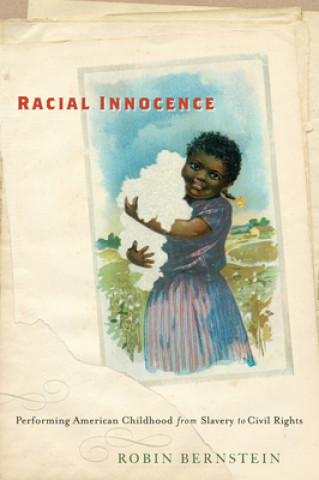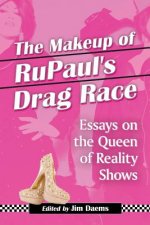
Doručení
Nákupní rádce





Nehodí se? Vůbec nevadí! U nás můžete do 30 dní vrátit
 Dárkový poukaz
V libovolné hodnotě
Dárkový poukaz
V libovolné hodnotě
S dárkovým poukazem nešlápnete vedle. Obdarovaný si za dárkový poukaz může vybrat cokoliv z naší nabídky.
Racial Innocence
 Angličtina
Angličtina
 295 b
295 b
30 dní na vrácení zboží
Mohlo by vás také zajímat


Beginning in the mid nineteenth century in America, childhood became synonymous with innocenceoa reversal of the previously- dominant Calvinist belief that children were depraved, sinful creatures. As the idea of childhood innocence took hold, it became racialized: popular culture constructed white children as innocent and vulnerable while excluding black youth from these qualities. Actors, writers, and visual artists then began pairing white children with African American adults and children, thus transferring the quality of innocence to a variety of racial-political projectsoa dynamic that Robin Bernstein calls "racial innocence." This phenomenon informed racial formation from the mid nineteenth century through the early twentieth, while enabling sharply divergent political agendas to appear, paradoxically, to be innocuous, natural, normal, and therefore justified. Racial Innocence takes up a rich archive including books, toys, theatrical props, and domestic knickknacks which Bernstein analyzes as "scriptive things" that invite or prompt historically-located practices while allowing for resistance and social improvisation. Integrating performance studies with literary and visual analysis, Bernstein offers singular readings of theatrical productions, literary works, material culture including Topsy pincushions and Raggedy Ann dolls, and visual texts ranging from fine portraiture to advertisements for lard substitute. Throughout, Bernstein shows how "innocence" gradually became the exclusive province of white childrenountil the Civil Rights Movement succeeded not only in legally desegregating public spaces, but in culturally desegregating the concept of childhood itself.
Informace o knize
 Angličtina
Angličtina
Kategorie




 Jak nakupovat
Jak nakupovat
































